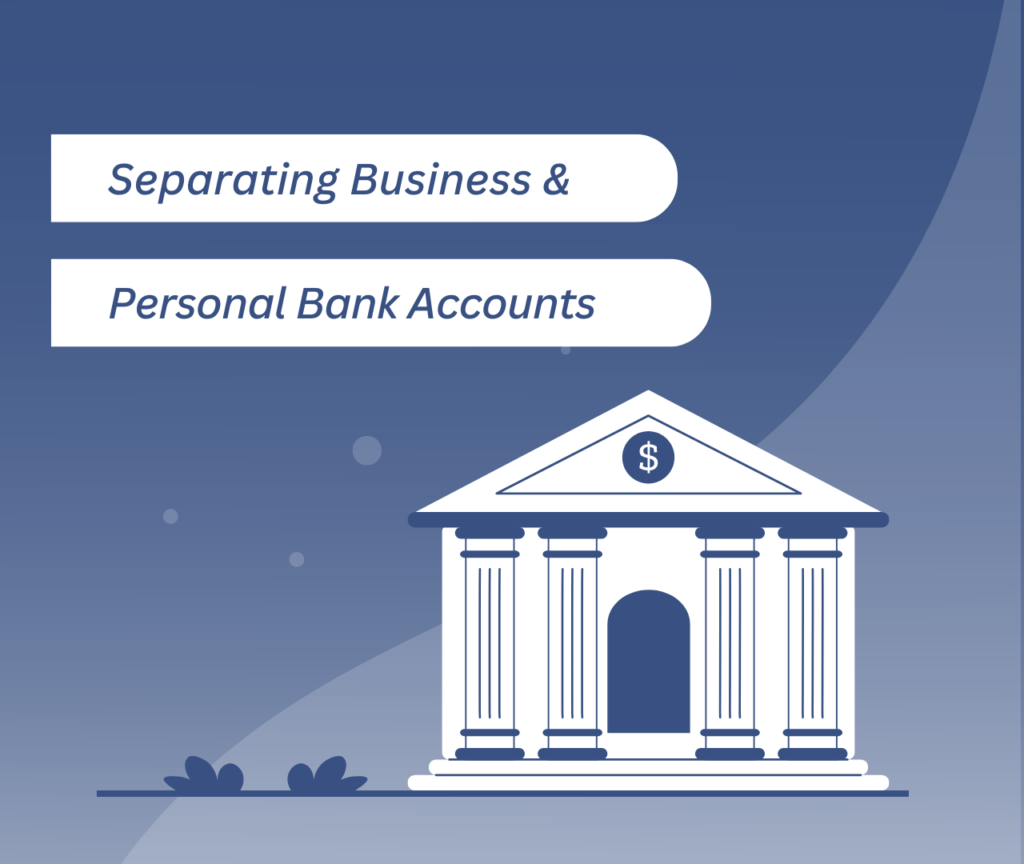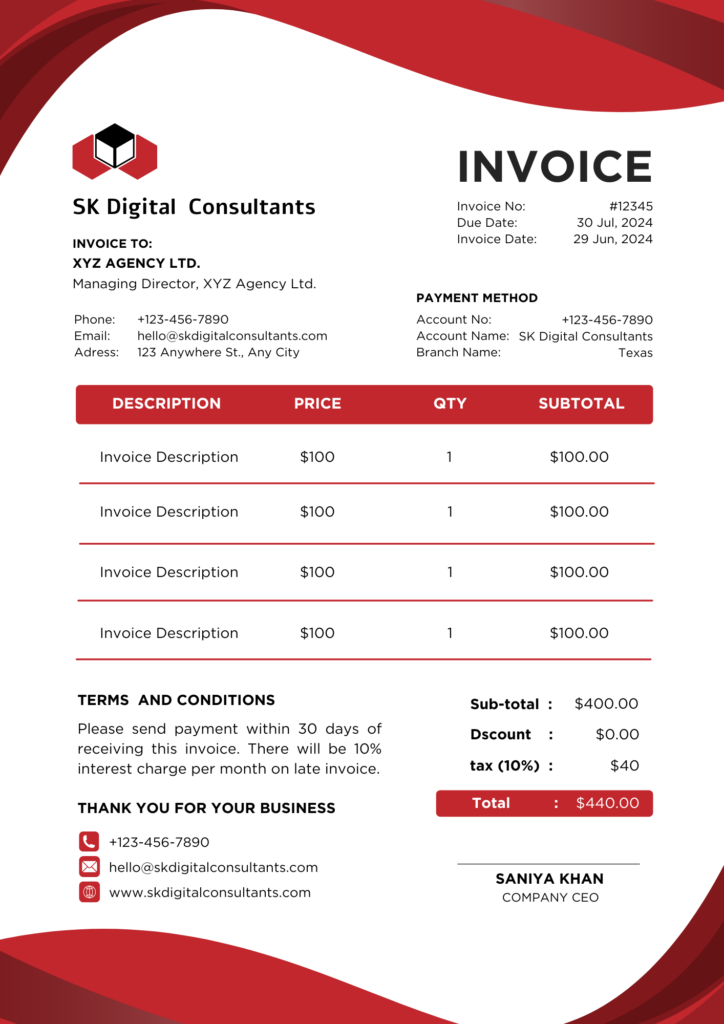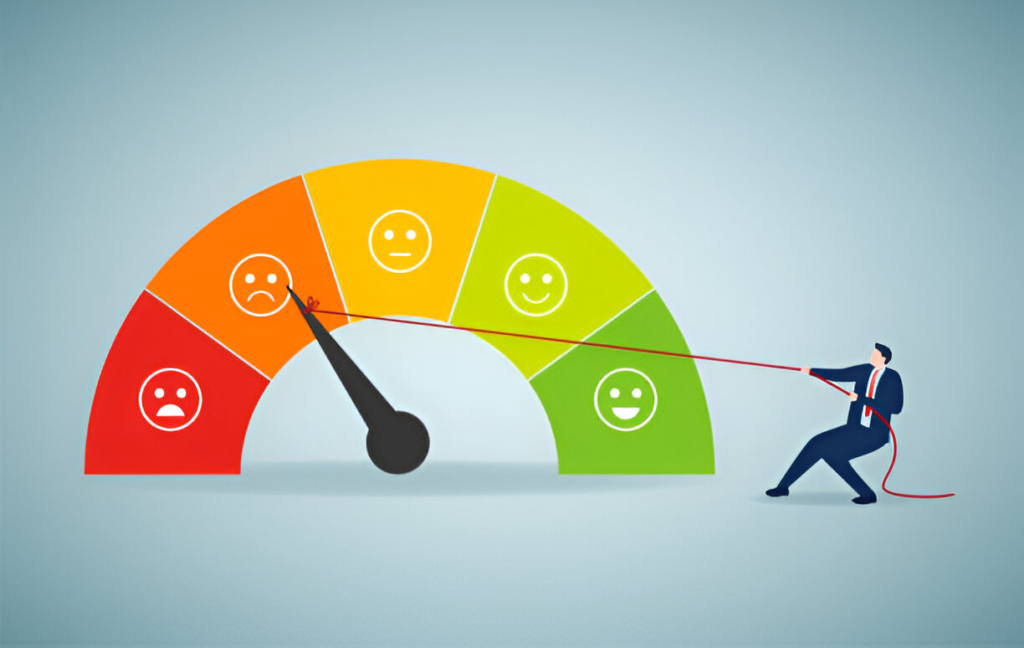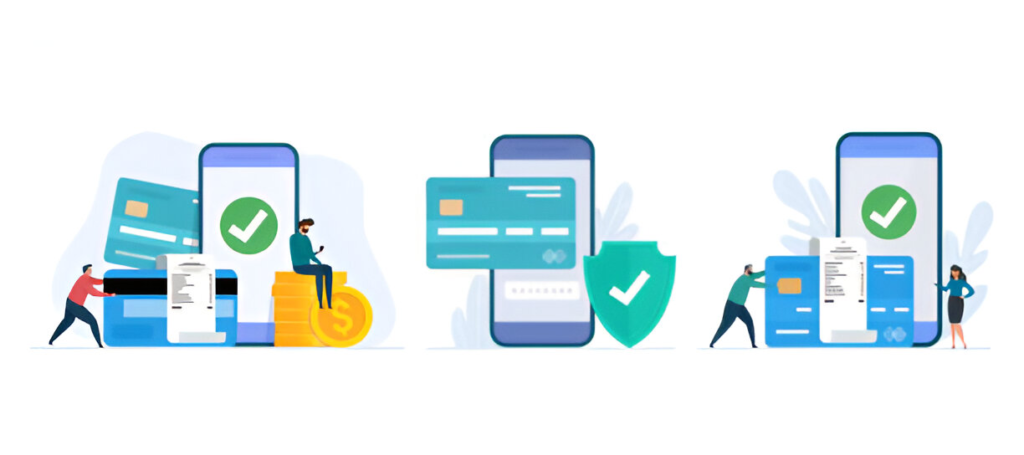
Starting a new business is a joyous moment for entrepreneurs. When your venture starts generating revenue, you may find it easier to keep the amount in your personal account. But this mistake can make your finances a huge mess in the long run. So, why should you separate your personal and business bank accounts?
Opening a separate business bank account may seem a hassle. But it can simplify the process of managing business finances. So, let’s explore some major benefits of separating your personal & business finances.
Table of Contents
ToggleWhy Should You Separate Your Personal and Business Bank Accounts
Establish a Unique Business Identity
When you launch a new business, you should treat it as a separate business entity. And opening a separate business account makes the process easier.
Have you ever sent an invoice to a client?
When I started as a freelancer, I made the mistake of using my personal bank account for business transactions. So, the invoice was from “Saniya Khan”. As I learned more about business entities, I switched to a business account. Now my invoices are sent on behalf of “SK Digital Consultants”.

Doesn’t it look more professional?
This professionalism makes a great difference in how others perceive your business. It demonstrates that your business is legitimate and well-organized. So, your vendors, partners, and potential clients will trust you and find your business credible.
Your business account allows you to create a clear and consistent brand image.
Having your business name on your checks and invoices helps reinforce your brand every time you make a financial transaction. This is important for marketing and building a positive brand reputation in the minds of your customers.
Build Business Credit from Day One
Every business needs a strong credit history. Whether you’re just launching a small startup or have a successful business, a good credit score will help you out on so many levels.
One of the major benefits is easy access to financing. When you need loans to expand your business, you can get the amount with ease. Also, your credit score will convince the lenders to offer you low interest rates.
When dealing with vendors/suppliers, you can get favorable payment terms. In most cases, you can receive goods on time and can make deferred payments in the next 1-2 months.
So, get a business account without unnecessary delays. Then obtain a business credit card for managing business transactions. Paying your bills on time will help you maintain a good credit score.

Personal Liability Factor
The benefit of establishing an LLC is that it reduces your liability. This means you aren’t personally liable for your business’s debts.
But you can’t enjoy this benefit if you use your personal bank accounts for business transactions. Thus, it’s crucial to separate your business account from your personal finances. It ensures your personal financials will stay secure even if your LLC faces a lawsuit.
90% of businesses face a lawsuit at some point. If your business and personal finances are commingled, chances are your personal assets will be at risk. If you can’t pay off fines or settlement money with business assets, you may need to make up for the difference with your personal assets.
So, choose the right business structure like an LLC or corporation that provides liability protection. Then maintain a separate business account and don’t use it for personal expenses.
Simplify Tax Filing
You can simplify the business tax filing process by separating business and personal finances.
With separate accounts, all your business transactions will be in a single place. So, you won’t have to sort through the account statements to determine which expenses were personal and which ones were for business.
This approach will save you time, avoid potential issues with the IRS, and reduce stress during the busy tax season.
Further, you can reduce the risk of overlooking deductible business expenses such as business travel costs, office supplies purchases, or client lunches. Thus, when filing tax returns, you can ensure to claim all possible tax deductions.

Improve Financial Tracking
Dedicated bank accounts help you monitor your business’s financial health and performance.
You can keep track of business expenses and income. This will ensure your financial statements are accurate. Also, it will assist you with effective cash flow management. You can avoid cash flow shortages and maintain enough business funds to cover operational expenses, employee payroll, and other necessary expenses.
Additionally, separate accounts make things easier during budgeting. Since you have accurate financial data, you can set realistic goals, avoid overspending, and make informed decisions.
When the time comes to expand your business, you can make the right decisions. It will be easier to pursue opportunities that can take your business forward.
Ensure Regulatory Compliance
For many small businesses, keeping business and personal finances separate isn’t just a good practice but a legal requirement. It provides transparency and accountability.
In the event of an audit by regulatory bodies such as the IRS, having separate bank accounts simplifies the process. A clear audit trail protects your business during financial scrutiny. Auditors can quickly verify your business income and expenses due to clear and distinct financial records. This will effectively reduce the risk of penalties.
Also, certain industries have specific regulatory requirements. For instance, healthcare providers, financial services, and government contractors are obliged to report financial transactions properly.
If you keep your personal and business finances separate, you’ll find it easier to comply with these regulations.

Leverage Business Banking Benefits
By opening a separate business checking account, you can make the most of the unique benefits offered to business account holders.
Chase, Citi, Axos, and other banks in the US offer bonuses of up to $2,000. You can compare the benefits to decide where you should open a business bank account.
Another major benefit is access to credit and loans. You can get favorable terms and interest rates if you are a long-term account holder. These funds come in handy for purchasing inventory and managing cash flows.
In addition, banks often offer cashback offers on use of credit cards.
Business accounts also include prioritized customer support. You can get specialized financial products such as merchant services and cash management solutions. With these services, you can meet your business needs.
Banks charge account holders a monthly maintenance or service fee. But this fee can be easily waivered by maintaining a minimum cash balance or making transactions of specified amount per month.

So, why should you separate your personal and business bank accounts?
Separate bank accounts make things easier for entrepreneurs. You can establish a professional image, build trust with clients and vendors, and streamline financial operations. Clear financial records simplify tax preparation and help you maximize deductions. You can keep track of your business’s performance and meet legal requirements.
So, if you’re still using personal accounts for business transactions, just STOP!
Open a separate business account ASAP. Then you can take full advantage of the services and benefits offered to business account holders.
